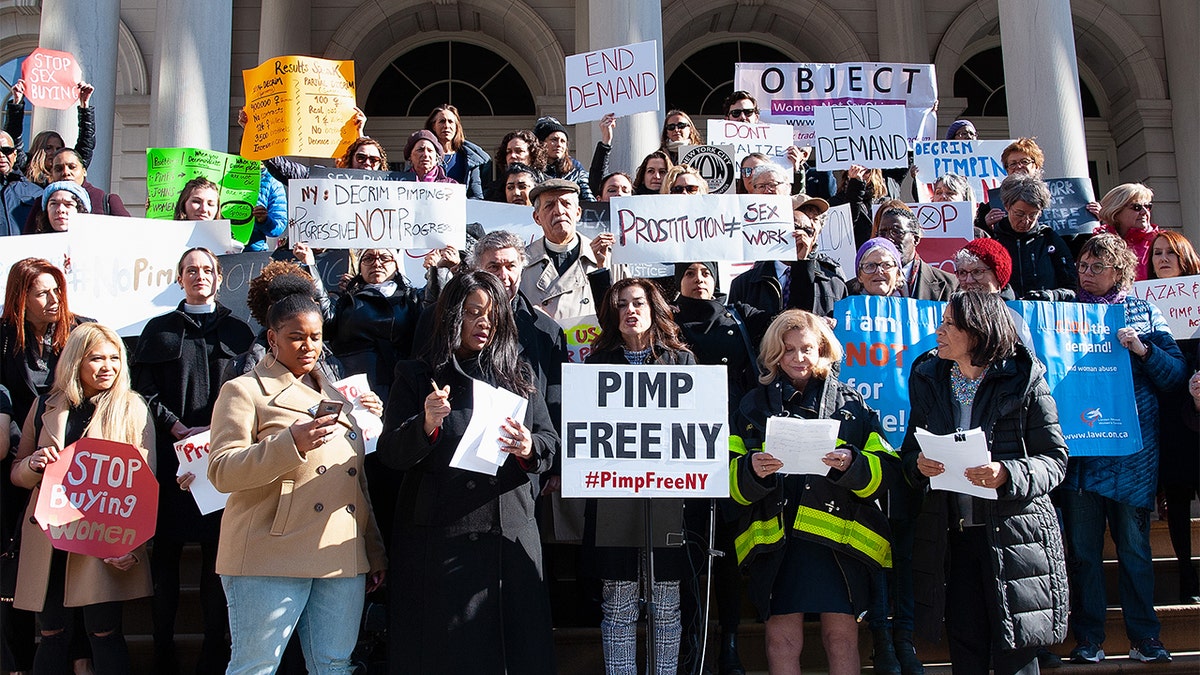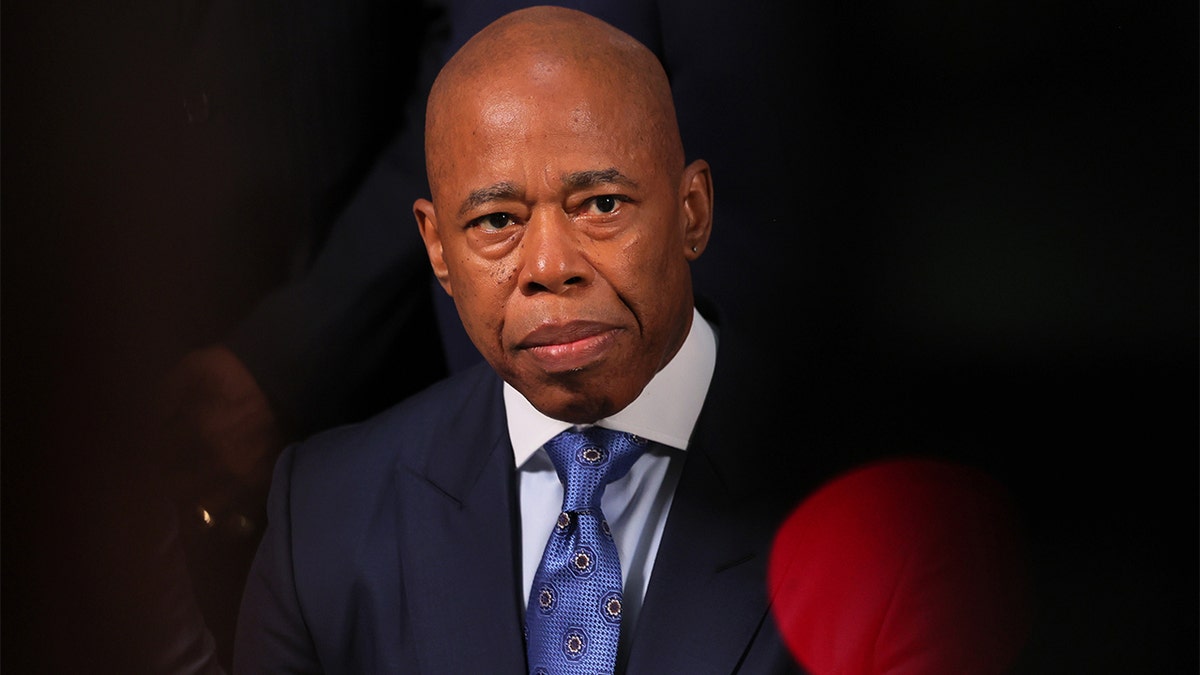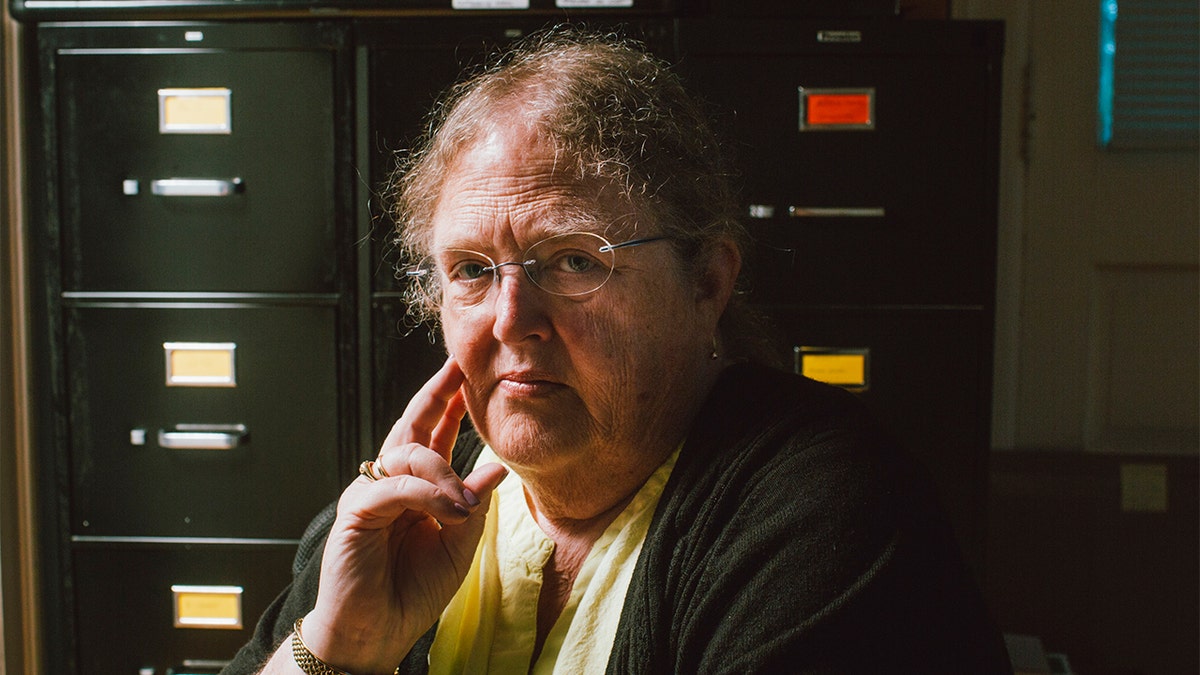Maine becomes the first state to partially decriminalize prostitution
Fox News’ Bryan Llenas reports on six other states considering decriminalizing prostitution while still criminalizing sex trafficking.
New York state has a bill in committee that would fully decriminalize prostitution statewide, for the first time in the U.S. The decriminalization model would remove all charges for both sex traffickers and their victims, similar to the laws in Belgium and New Zealand, but is facing headwinds from survivors and Democrats alike.
The New York "Stop Violence in the Sex Trades Act" is co-sponsored by state Sen. Julia Salazar, a Democrat. Fox News reached out to Salazar's team for comment but has not received a response.
Republican state Sen. Anthony Palumbo, the ranking member on the Codes Committee, has been a leading voice against Salazar's bill. If it passes, Palumbo cautions that New York may fall farther into chaos, and look more like Amsterdam's "red light district" with a spike in human trafficking.
"This is the dynamic with prostitution: it brings along other types of crime with it – robberies, burglaries," Palumbo told Fox News. "And when it becomes legal, it becomes more prevalent and more easily accessible."

An allied group of women's rights organizations and victims of sex trafficking protest against the push to decriminalize prostitution at City Hall in New York City. (Gabriele Holtermann-Gorden/Pacific Press/LightRocket via Getty Images)
According to data from World Without Exploitation, sex trafficking increases in countries that fully decriminalize sex trafficking. Research by the New Zealand government found that the majority of those in prostitution did not feel any safer under full decriminalization.
Nevada is the only American state with a legalization method in place, but it is not statewide, allowing 10 of its 16 counties to legally license brothel prostitution.
New York City Mayor Eric Adams told Fox News he disagreed with the push to legalize prostitution. Adams, a Democrat, said his goal has been to provide victims of sex trafficking with the services they need, similar to the goal of the "Equality Model" in Maine.

Democratic Socialist New York Sen. Julia Salazar has co-sponsored a bill "Stop Violence in the Sex Trades Act" that would decriminalize prostitution and remove charges for victims of sex trafficking and for sex traffickers in New York. (Scott Heins/Getty Images)
Maine became the first state to sign legislation into law this June partially decriminalizing prostitution under the "Equality Model" or "Nordic Model". The law goes into effect this fall and follows the model adopted by Sweden, Norway, Northern Ireland, Iceland, Israel, Canada and Ireland. The approach criminalizes the prostitution business while decriminalizing the sex worker.
State Rep. Lois Reckitt, a Democrat, first heard about this policy model from a local police officer in Portland, Maine. The officer told Reckitt he was frustrated with the horrors of sex trafficking and wanted to make a real change in his community. He soon learned about the "Nordic Model" garnering international attention for its success.
Sex trafficking decreased in Sweden and Norway under the "Equality Model," according to research from World Without Exploitation.
TIM TEBOW LAUNCHES MAJOR NEW CAMPAIGN TO FIGHT HUMAN TRAFFICKING AND SAVE CHILD SEX VICTIMS

New York City Mayor Eric Adams has expressed his disagreement for the promotion of decriminalization for prostitution. (Michael M. Santiago/Getty Images)
The first version of Reckitt's proposed "Equality Model" was vetoed by Gov. Janet Mills, D-Maine, in 2021. Mills ultimately signed the bill sponsored by Reckitt into law in a historic first for the United States. Massachusetts, Tennessee and Rhode Island have proposed similar laws so far this year, aimed at protecting victims of sex trafficking and enforcing crimes against their perpetrators.
Maine's law also elevates the crime of child prostitution from a misdemeanor to a felony and would connect survivors with resources to create a more seamless transition out of prostitution. Reckitt has been collaborating with local and state government agencies and speaking with survivors to learn how the new law could yield the best results for rehabilitation.
"The point of it is to stop arresting those women and find ways for them to have a better life and to get into the real world with real jobs and real housing and real support," Reckitt told Fox News in an interview.

Maine State Rep. Lois Reckitt is a proponent of the "Nordic Model" which is a policy model that advocates decriminalization of prostitution in Maine. (Whitney Hayward/Portland Portland Press Herald via Getty Images)
Survivor and advocate Melanie Thompson has dedicated her life to this exact work. Thompson is the Outreach & Advocacy Coordinator for the Coalition Against Trafficking in Women – an organization working to end sex trafficking. Fox News had the opportunity to sit down with Thompson.
Thompson's story begins with a trip to the movies with her friends in Queens, New York, when she was 12 years old. After the movie, the girls ran into some older boys who had graduated from their school. The boys invited them over for a game of Spin the Bottle. One of the boys brought a bottle of vodka, and before she knew it, Thompson had blacked out and passed out. She woke up to one of the boys raping her.
"My two girlfriends were gone... but when I tried to run out of this house, the boy who had just finished raping me came back down with this older man who told me that I wasn't going anywhere," Thompson told Fox News. "So that was the start of my trafficking experience. I was brought across the street to an abandoned house and locked in a closet with no running water, electricity, mattress."
Thompson was eventually picked up by police on a missing person's warrant. The judge in her case deemed Thompson a flight risk and sent her to a residential treatment facility for sexually exploited girls in Westchester County. When she was discharged from the facility, Thompson was sent to a foster home, where she was reintroduced to sex trafficking – this time under the control of her foster mother.
"When I was exploited by my foster parents, I was not under pimp control. I felt like I was empowered when I was 16," Thompson said. "I thought that I had the choice to make all the decisions I was making. But, you know, in hindsight, I had to realize that I was actually being controlled by my two foster parents. And I knew that they were the ones that held the keys to where I stayed."
During a mandated therapy session at her foster care center, Thompson inadvertently revealed her foster parent's exploitation and was evacuated from her foster home. Thompson was sent to nine different foster homes before the age of 20. Now, Thompson supports survivors like herself and advocates for the adoption of the "Equality Model," similar to the legislation just passed in Maine.
"'The Equality Model' is a wrap-around comprehensive bill that focuses on survivors rebuilding their lives after the life," Thompson said. "It has an aftercare service component, which is super important, and it really focuses on decriminalizing the person, like me, in those situations, because we all know that criminalization is not the way to go when you're somebody who's been exploited, but it maintains the penalties that we have here in the state for people who perpetuate this system of prostitution – so sex buyers, traffickers, brothel owners, etc."
Thompson disagrees with the characterization of prostitution as empowering. She argues that most victims of sex trafficking come from marginalized groups with a lack of resources. It is a matter of survival when it is their only option.
"You can't make a choice if you don't have choices," Thompson said. "When you come from a place of not having any of your basic necessities met, when you come from a situation where you have no other resources or options. Prostitution, as I mentioned, is a system that targets you for not having any other options."




